“If there’s one thing I can’t stand, as a restaurant owner, it’s that customer who orders a spicy dish and then complains it’s not hot enough.” —Chris Schlesinger, chef-owner
“There’s always this one guy [yes a it’s a guy thing and only rarely a girl thing], there’s always one…” Chris explained to me, “…who just has to turn it into a kind of contest, between Chef and Patron.”
Chris was my favorite chef, the owner of my favorite restaurant near my software company in Cambridge, back around the year 2000. He owned several fancy restaurants but he always said East Coast Grill was his attempt at making the sort of place where he would want to eat.
The food was mostly fish, but also some exquisite barbecue. Everything was served as a bright splash of color, with flavors pulled from a wide variety of tropical fruits and exotic spices. Behind the bar was a giant crate of grapefruits and oranges so that anyone ordering juice would have it squeezed directly into their glass.
The joy in the air was tremendous. There were concrete floors, casual clothes, fun music, and delicious food. This was in the early days of internet, and while some restaurants had an electronic way for orders to be sent to the kitchen, this restaurant did everything low-tech because Chris said it built community.
💣 💣 💣 💣 💣 💣 💣
A system of wires was strung overhead, with little metal clips for servers to send orders to the chefs on miniature zip lines. If the kitchen was close to running out of something, the staff would call it out. A chef would holler “3 salmon!” Then any server within earshot would yell “3 salmon!” Until the message made its way to all the other servers. Often right after this would be a “2 salmon!” and a “1 salmon!” as other customers would rush to get their orders in. “86 salmon” came after “1”, because that number means “cancel” in kitchen-speak. Being there made everyone feel like an insider.
On weekends they opened a “Do-It-Yourself Bloody Mary Bar”, and since Chris let each member of his staff add their favorite ideas, the selection of condiments and ingredients was a spectacle.
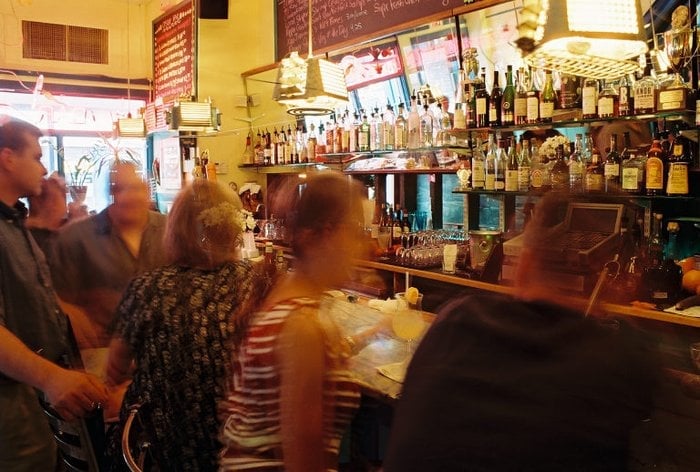
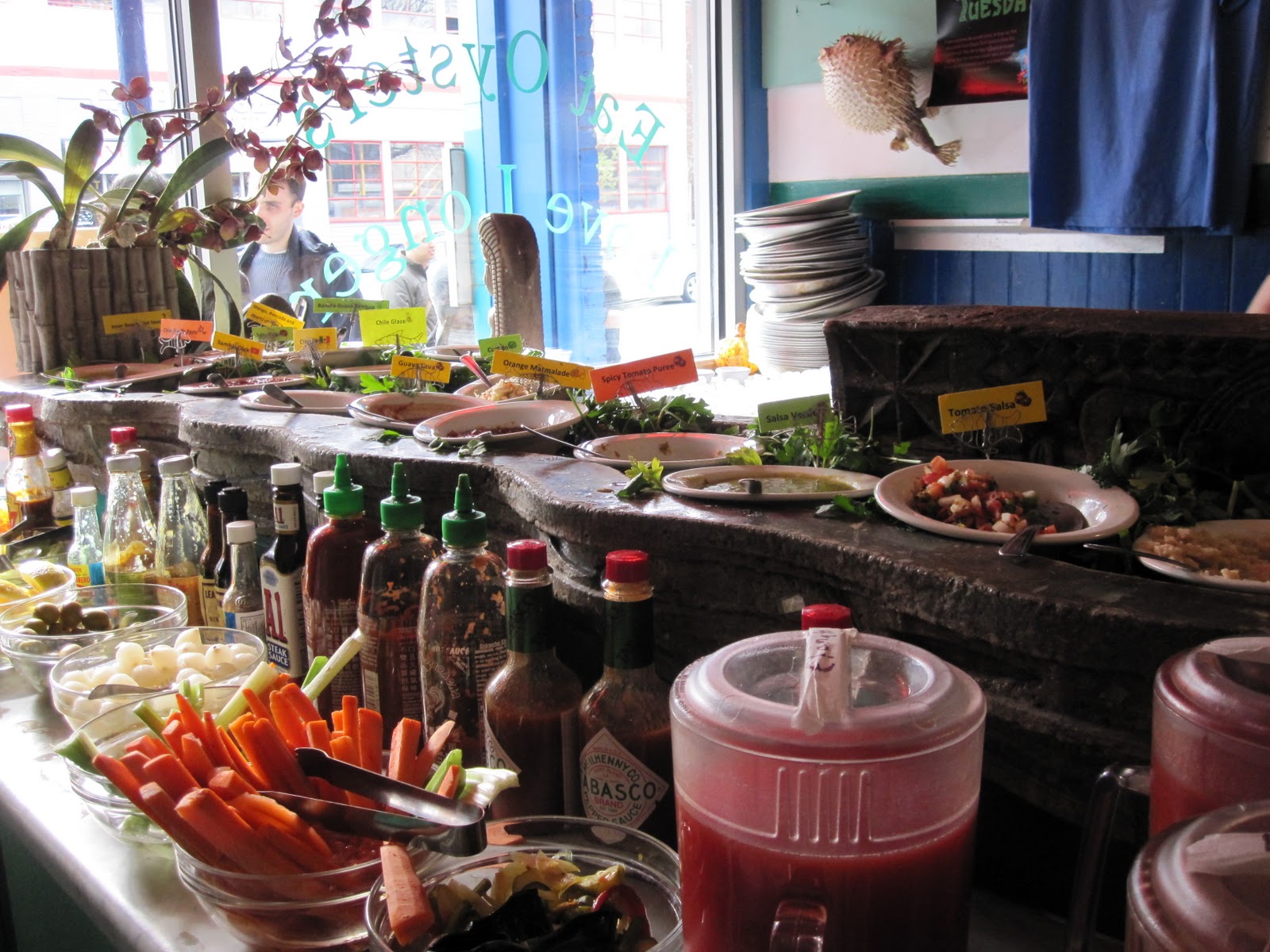
Chris felt it was important for people to have opportunities, so every person who worked in the restaurant would come to a daily meeting and learn something. He taught about the business and about cooking. He said every person there, even the cleanup crew, should be able to explain to a customer the details of how every dish is prepared. “We all work together.”
- Barbecue means “low heat, slow cooking”
- Grilling means “high heat, fast cooking”
I was there one day to overhear the staff meeting about that, and I’ll never forget it. The passionate intensity! When he got excited a gentle hint of German accent came out, and he yelled “Both are delicious but I don’t ever want to hear someone say they are putting hamburgers on the barbecue – if there are black lines on the meat then you are grilling, not barbecuing!”
“I want everyone who works here to know that there is no limit to your opportunity for promotion if you want it,” Chris often said, “If you are interested, a good team player, and work hard, I can and will promote you all the way to the top.” And he meant it. I saw one bartender promoted to manager, and then he provided the money for that bartender to buy a nearby restaurant so they could run it as partners. He made that bartender an owner.
💣 💣 💣 💣 💣 💣 💣
On “Hell Night”, for this one special day, the whole decor was set up as a Hell party. The servers and hosts wore angel and devil costumes. The music would be songs like “Highway to Hell” (AC/DC), “Hell is for Children” (Pat Benatar), “Running With The Devil”, and other hard rock within the theme.
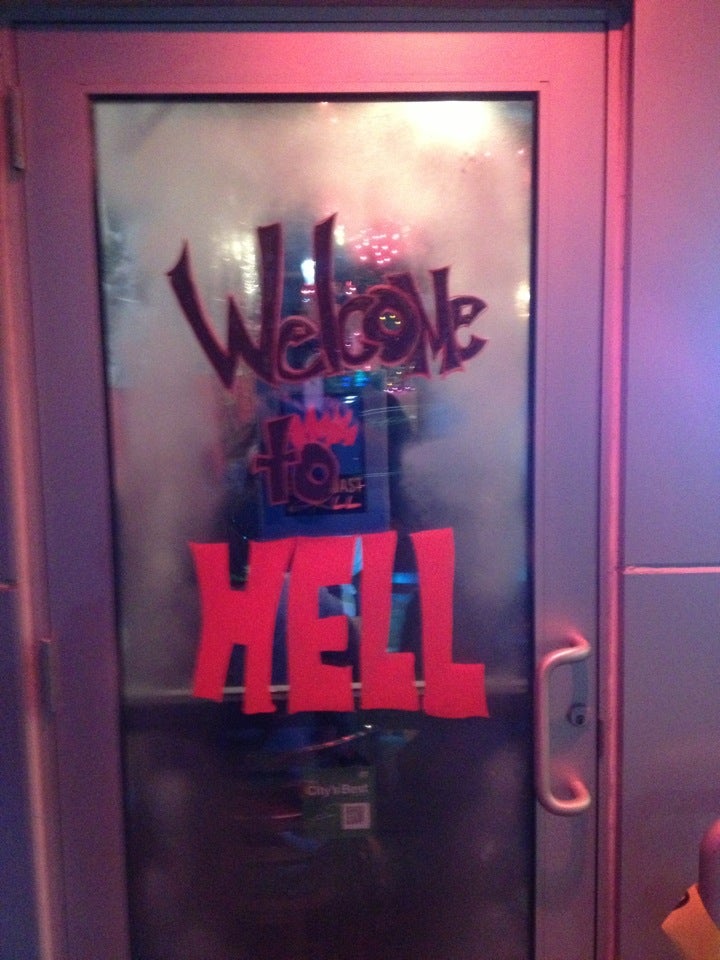
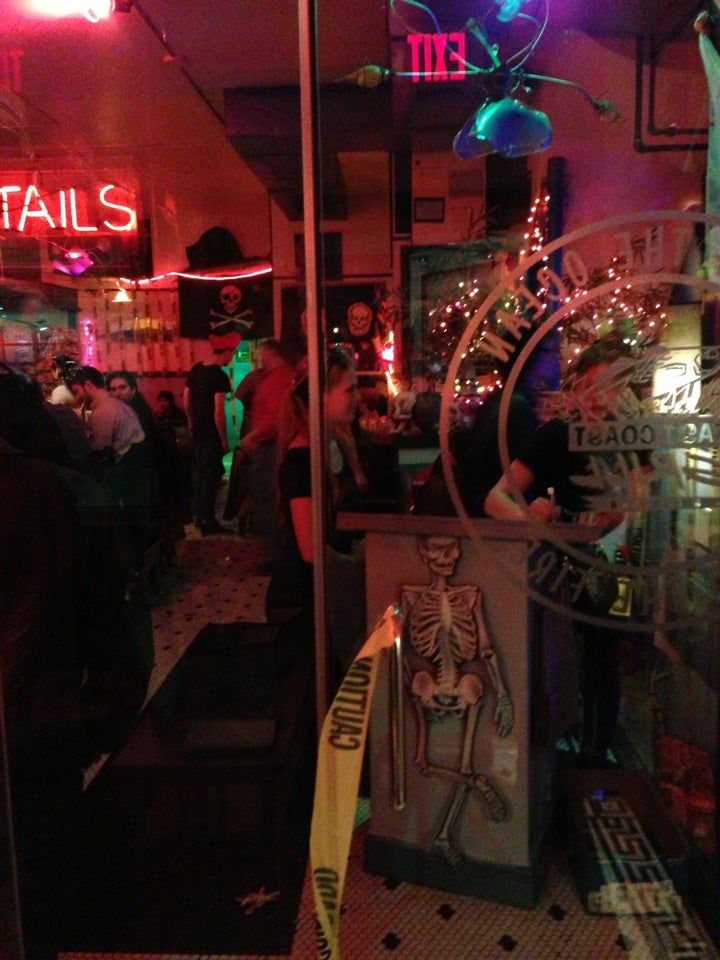
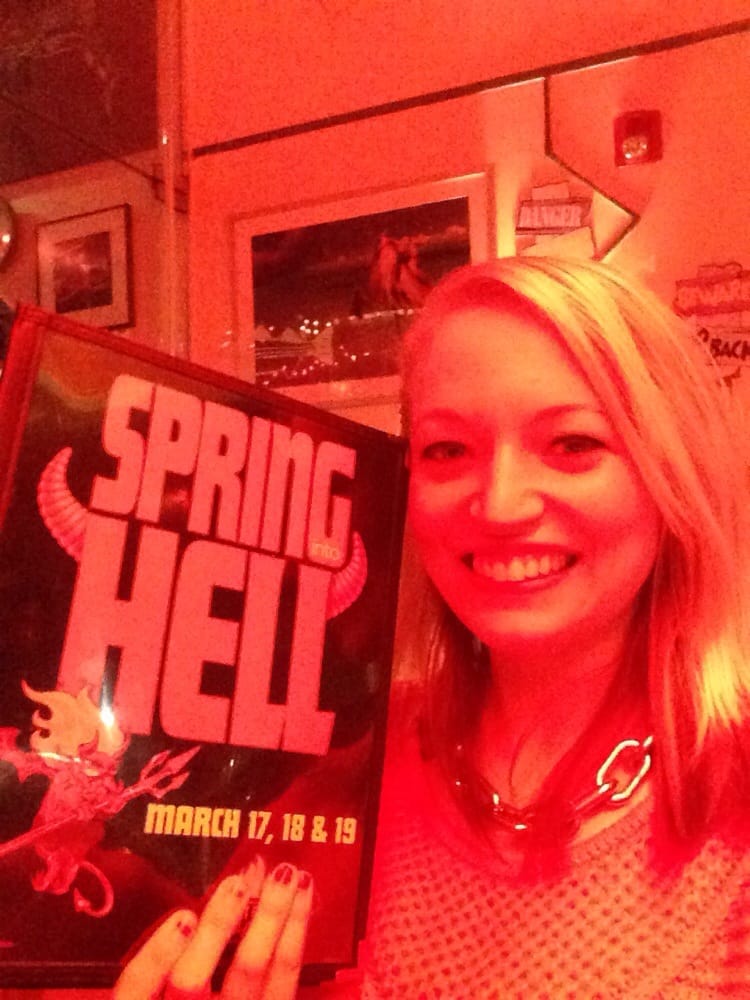
The entire menu was changed. Every single dish was something they would never serve on any other day.
Items on the menu had little “bomb” icons, on a scale from 1 to 5 to show how hot it was. A “1-bomb” dish was spicier than most restaurants would ever serve.
“Here’s the problem with that one guy who teases the chef with a challenge to be more spicy,” Chris explained, “Of course I can serve a spicier dish. I can even make it tasty through the heat. But as a restaurant owner I can’t serve that. The one guy will be happy, but most of my customers will be furious if I serve something like that.”
This is how “Hell Night” was born. On this one day, everyone knows what they’re in for. Or, at least, there are no excuses for complaining.
On the scale of heat from 1-5 bombs, of course there was always one item with 7.
The 7-bomb dish was usually flank steak that had been marinated in Ghost Pepper sauce. The entire kitchen staff wore protective respirators with sealed face masks over their eyes, to avoid injury from the vapors.
They would only serve the 7-bomb dish if the customer signed a release, a legal form promising not to hold the restaurant responsible if the meal causes injury.
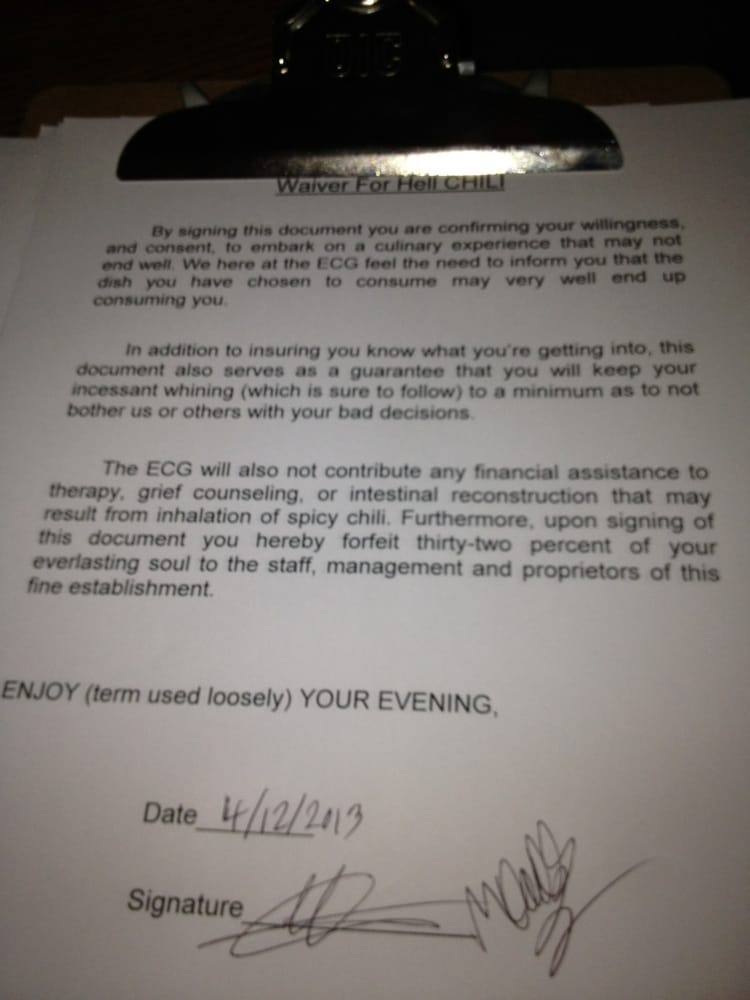
As Chris’ final apotheosis to answer to the spice challenge, he offered “if anyone who can finish the entire 7-Bomb meal, it’s free.”
💣 💣 💣 💣 💣 💣 💣
“The Antidote” was a mysterious entry on the menu. It was the only item without any bombs.
During dinner, the chef and servers would prowl between the tables, eagerly looking for anyone who might be struggling with their meal. “How’s it going there?” one might ask, “hot enough for ya?”
At the slightest sign of weakness, they would offer relief. “The Antidote is just a dollar,” they would suggest, with an eager grin, “all you need to do is ask!” But it was plain to see their enthusiasm suggested they were holding something back.
Ask what the antidote actually is, and any fears of shenanigans would grow. They would flat-out refuse to answer. “So, umm… if you’re asking about the antidote, does that mean you want it? Because I can bring it out if you do…” Very suspicious.
“WHOOOOAAH!” a strong call from the back pierced the noise in a thick Island accent. The hellish heavy metal music stopped abruptly. The servers stopped in their tracks. “OOOGA BOOGAH!”, the bellowed echoed through the restaurant now quiet and confused.
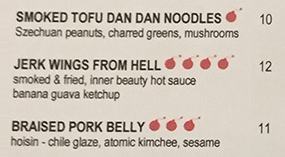
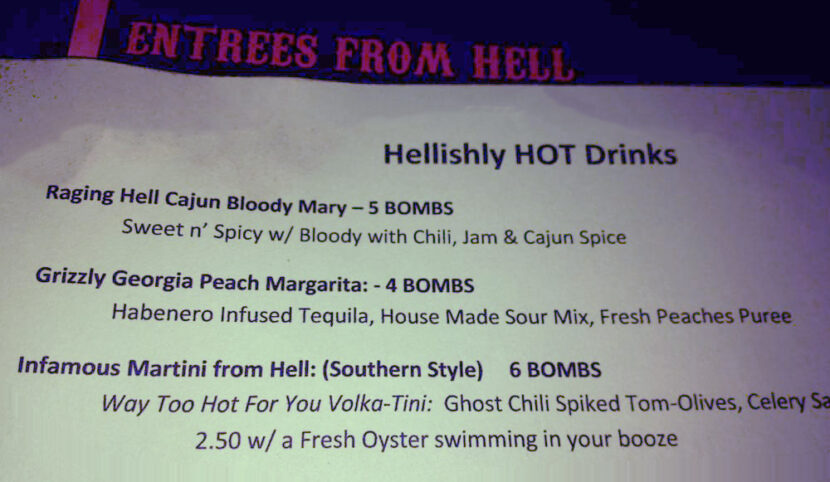
The head chef was a large man, with very dark skin and a deep boom to his voice. He twisted and turned as he danced between the tables, leaning forward and back. Across the restaurant over the sea of seated diners, two hands are held high — one with a loud metal noisemaker, and the other with a small white plate.
As he yelled and spun into view, the shirtless man emerged, complete with grass skirt and a thatched crown of palm leaves.
“Coming thru! Make way for The Antidote!!!”
And in that moment, it becomes clear. Smirks and smiles turn into outright laughter, as the chef spun circles while squeezing his way through all the customers in the crowded room. Eventually he would reach his destination, a guest with a bright red face. And not just from the spicy food. It was painfully clear, the whole restaurant learned that the antidote, actually an ice cream sandwich, cost more than $1. Part of the cost (or maybe the cure?) was also humiliation.
💣 💣 💣 💣 💣 💣 💣
The Business Lesson
When “Hell Night” began, it was a one-night joke. Then annual. Word got around and it would sell out instantly, so it became a weekend. Several times a year. And it lasted well over a decade. This level of uniqueness, this crazy exuberant display of passion, from a committed all-in well-appreciated team… is how a business becomes legend.
How was the staff so deeply engaged? The owner didn’t “make them” put on costumes… Chris first honored his team, by sharing his knowledge with them and offering an open promotion policy. He created a culture of excellence, but by creating a pathway to success for them. “If you work here, you’re going to learn to cook.” So when he called upon his team to play out his cray idea, they helped him to brainstorm and take it to the next level.
How were the customers on board? It wasn’t just performative. He was a top-tier chef who knew his trade and was relentless about experimenting with new techniques and flavors. It wasn’t just a spectacle, it was truly a Fine Dining experience, despite the paper napkins and casual setting.
How did East Coast Grill’s “Hell Night” become tremendously popular? The restaurant was already doing well… but the Hell Nights were so unusual that they created priceless indelible memories, enough to make people want to share the story even two decades later.
If you’re interested in more, his cheeky-titled books (License to Grill, Lettuce in your Kitchen, Quick Pickles), and basics like Salsas, Spice Rubs, and simply How to Cook Meat, have a favorite place on my shelf. I recommend them highly.

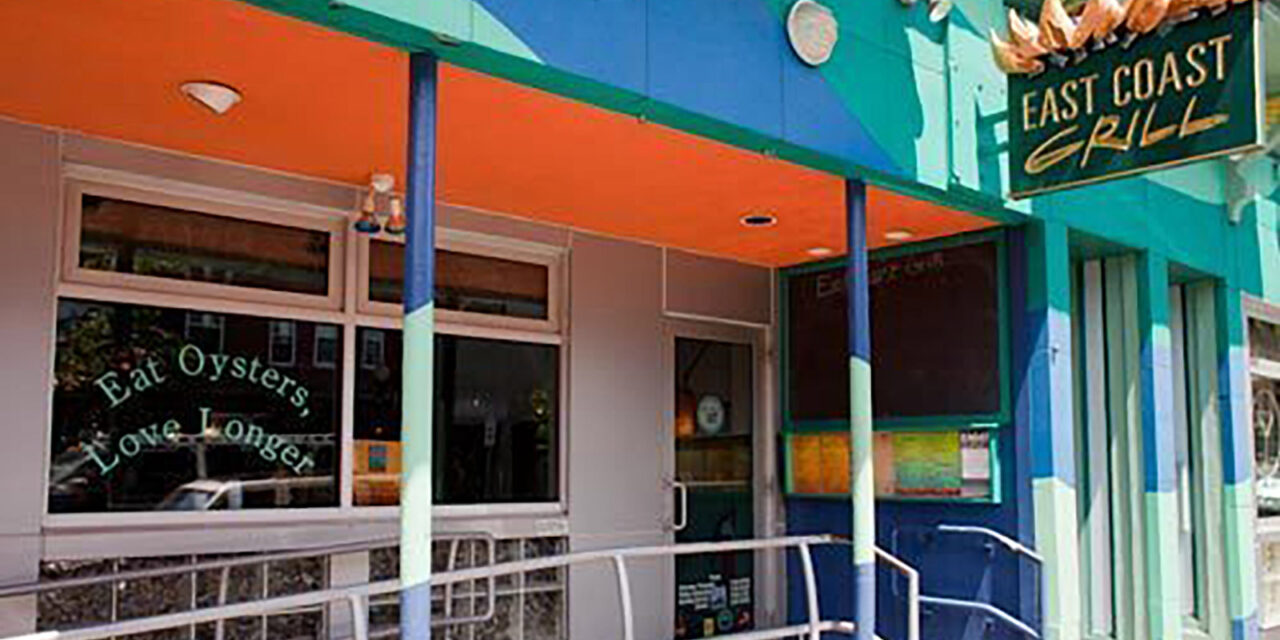
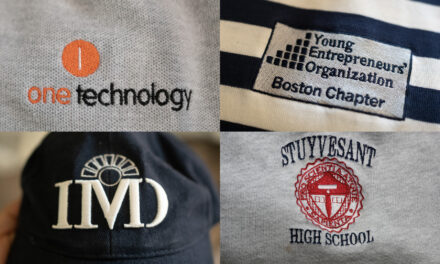
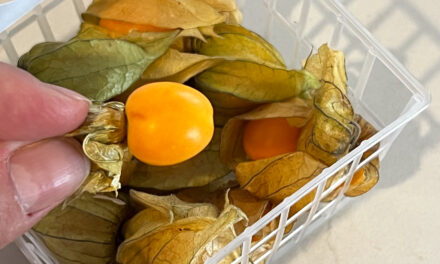

Thanks for showing me that place! Are there any photographs from that trip?
I don’t remember… do you have any idea when you and I were there? I feel like it must have been before high-quality phone cameras. My photo collection from 1993-2008 is almost zero.
Legend for sure. Great feasts are a shared experience, and Hell Night was always a great feast. Thank you for such good writing that captures the glory of those days.